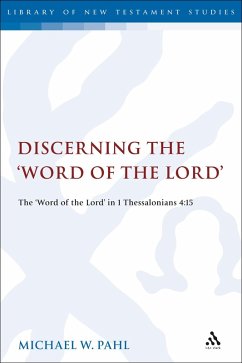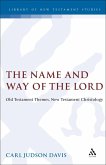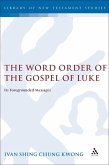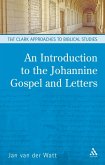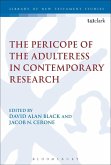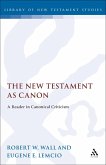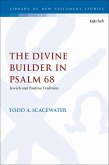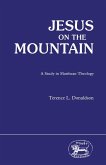In 1 Thessalonians 4:15, the Apostle Paul appeals to a "word of the Lord" to provide authority for his eschatological encouragement. This appeal has left a perplexing problem related to the nature and function of the specific authority to which the phrase refers. Two theories have predominated in the history of interpretation: either 1) it refers to a directly received prophetic revelation, whether to Paul or to another Christian prophet; or 2) it refers to a teaching of Jesus received as tradition, whether preserved in the Gospel tradition or otherwise unknown.This book investigates this problem from three angles: epistemological analysis, examining Paul's authorities for his knowledge, particularly in his eschatology; linguistic analysis, including both grammatical and lexical study of the phrase; and contextual analysis, setting the statement within its historical and literary contexts. These approaches converge to suggest a fresh solution to the problem: while Paul does appear to employ traditional Christian eschatological teaching in his response to the Thessalonian crisis (4:16-17a), the phrase ?? ???? ?????? does not refer to this tradition, but rather refers to the proclaimed gospel message about Jesus centred on his death and resurrection which forms the theological foundation of Paul's response (cf. 4:14).
Es gelten unsere Allgemeinen Geschäftsbedingungen: www.buecher.de/agb
Impressum
www.buecher.de ist ein Internetauftritt der buecher.de internetstores GmbH
Geschäftsführung: Monica Sawhney | Roland Kölbl | Günter Hilger
Sitz der Gesellschaft: Batheyer Straße 115 - 117, 58099 Hagen
Postanschrift: Bürgermeister-Wegele-Str. 12, 86167 Augsburg
Amtsgericht Hagen HRB 13257
Steuernummer: 321/5800/1497
USt-IdNr: DE450055826
Bitte wählen Sie Ihr Anliegen aus.
Rechnungen
Retourenschein anfordern
Bestellstatus
Storno

